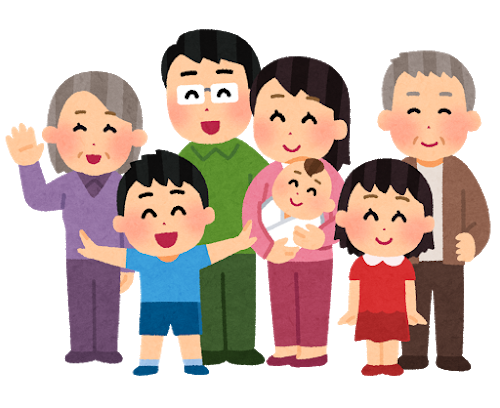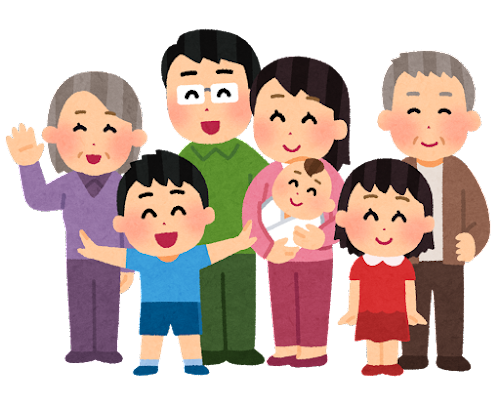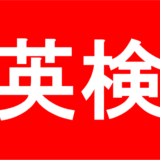Do you know how to address family members in Japanese?
The Japanese way of addressing family is a bit tricky because we distinguish when they call our own family members and when they call other people’s family members.
First of all, do you know how to say “family” in Japanese?
Today let’s master vocabulary about family and be able to introduce family members to your friends in Japanese!
Your own family
First, let’s start with how to call your own family.
You can play and listen to the audio below!
While listening to the audio, please click the + button below to see the Japanese(Kanji, Hiragana, and roman characters will appear)!
父
ちち
Chichi
母
はは
Haha
両親
りょうしん
Ryooshin
兄
あに
Ani
姉
あね
Ane
弟
おとうと
Otooto
妹
いもうと
Imooto
祖父
そふ
Sofu
祖母
そぼ
Sobo
息子
むすこ
Musuko
娘
むすめ
Musume
孫
まご
Mago
夫
おっと
Otto
妻
つま
Tsuma
Somebody else’s family
The vocabulary for mentioning other people’s family members is slightly different from what we have learned above.
Again, let’s listen to the audio, and click the English meanings to see Japanese!
お父さん
おとうさん
Otoosan
お母さん
おかあさん
Okaasan
ご両親
ごりょうしん
Goryooshin
お兄さん
おにいさん
Oniisan
お姉さん
おねえさん
Oneesan
弟さん
おとうとさん
Otootosan
妹さん
いもうとさん
Imootosan
お祖父さん
おじいさん
Ojiisan
お祖母さん
おばあさん
Obaasan
息子さん
むすこさん
Musukosan
娘さん
むすめさん
Musumesan
お孫さん
おまごさん
Omagosan
旦那さん
だんなさん
Dannasan
奥さん
おくさん
Okusan
So, for some vocabulary you just add “san” at the end, but others get very different.
Why is there such a difference?
That’s because Japan has the concept of “Uchi” and “Soto” relationships (internal and external relationships).
In Japanese, when you talk about yourself or your own family, you need to lower their presence to show your humility. While when you talk about other people’s family, you need to use polite forms to show respect.
So that’s why we have two kinds of ways to call family members.
One pronunciation you need to pay attention to is the difference between Ojiisan & Ojisan and Obaasan & Obasan.
Ojiisan (with long vowel sound) means grandfather or elderly man, but Ojisan (no long vowel sound) means uncle or Sir.
Obaasan means grandmother or elderly woman, but Obasan means aunt or Madam.
So be careful not to call your Aunt Obaasan, because she will be offended, hahaha.
Let’s practice conversation!
“How many people in your family?” in Japanese is;
ご家族は何人ですか(ごかぞくは なんにん ですか)?
Gokazoku wa nan-nin desu ka?
Make sure you use the word “gokazoku” instead of “kazoku” because when you are mentioning other people’s family adding “go” before kazoku is more polite.
Now, how do you answer this question?
Let’s first practice how to count the number of people in Japanese.
Please listen to the audio and repeat after it several times until you get used to the pronunciation.
1 person :ひとり(Hitori)
2 persons:ふたり(Furtari)
3 persons:さんにん(San-nin)
4 persons:よにん(Yo-nin)
5 persons:ごにん(Go-nin)
6 persons:ろくにん(Roku-nin)
7 persons:ななにん(Nana-nin)
8 persons:はちにん(Hachi-nin)
9 persons:きゅうにん(Kyuu-nin)
10 persons:じゅうにん(Juu-nin)
When you are asked “ご家族は何人ですか(Gokazoku wa nan-nin desu ka)?”, the most simple way to answer is “____nin desu.”
After saying the number of your family members, you can also list the family member using “と(to)” in between each word.
If your family members are like the picture below and you are the lady in the middle, how do you say?
Please check the audio below to see if your answer is correct or not.

The script goes like this;
家族は、7人です。父と、母と、夫と、息子2人と、娘と、私です。
Kazoku wa nana-nin desu. Chichi to Haha to Otto to Musuko futari to Musume to Watashi desu.
There are 7 people in my family. Father, Mother, Husband, two Sons, Daughter, and me.
Now that you know how to introduce your family members, please try to answer my question!
ご家族は、何人ですか?
Gokazoku wa nan-nin desuka?



